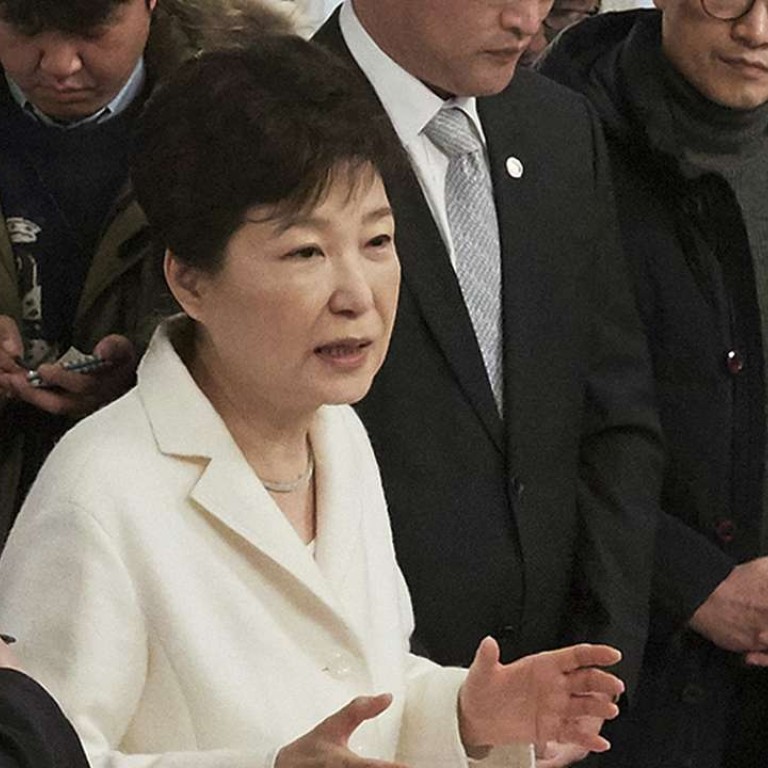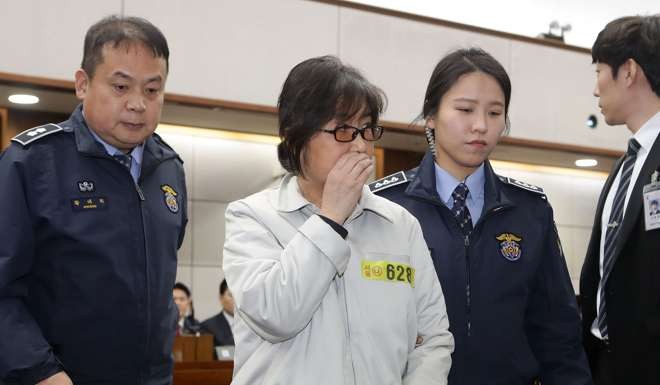
President Park Geun-hye accused of ‘broadly and gravely’ violating South Korean constitution as impeachment trial begins
The constitutional court has six months to decide if Park should permanently step down or be reinstated
South Korean lawmakers on Thursday accused President Park Geun-hye of violating the constitution as the country’s constitutional court began hearing oral arguments in her impeachment trial.
The allegations were made as Park’s lawyers and lawmakers, who serve as prosecutors in the trial, traded pointed arguments over accusations she colluded with a confidante to extort money and favours from companies and allowed the friend to unlawfully interfere with government affairs.
The chief prosecutor in the trial, lawmaker Kwon Seong-dong, said Park abused her position by “broadly and gravely” violating the constitution to commit corruption and turn state affairs into a profit tool for her friend.
He said she had to be kicked out of the presidency to repair the damage she had caused to the country’s democracy.
After Park was impeached in the National Assembly last month, the constitutional court has six months to decide if she should permanently step down or be reinstated. If Park is formally removed from office, an election has to hold within 60 days.
Park’s lawyer, Lee Joong-hwan, said the accusations stated in the impeachment bill “lack evidence and fail to make legal sense” because they were based on allegations and media reports, not criminal convictions.
The hearing proceeded without Park, who refused to testify for the second time following her no-show on Tuesday. The nine-justice court cannot force Park to appear.

The court had planned to hear testimony from four of Park’s former and current aides suspected of helping Park’s jailed friend, Choi Soon-sil, but only one appeared.
The court was not able to deliver subpoenas to former aides Ahn Bong-geun and Lee Jae-man, who both worked with Park for nearly 20 years since her days as a lawmaker, and Lee Yeong-seon, a current aide, asked to appear at another date, the court said.
Park has publicly apologised for putting trust in Choi, but denied accusations by state prosecutors that she colluded with her friend in criminal activities. Prosecutors also indicted Choi’s niece and several former government and presidential officials who allegedly assisted Choi in manipulating state affairs and exploiting her connections with Park to amass an illicit fortune.
Park’s lawyers may prefer her not to testify because their chief argument is that the accusations against Park have not been fully proven, said Han Sang-hie, a law professor at Seoul’s Konkuk University. Park rejected requests by state prosecutors to question her and has yet to be questioned by the special prosecution team that has taken over the inquiry.
During Thursday’s hearings, Seo Seok-gu, another Park lawyer, argued that the investigation into Park was biased and suggested that the massive protests that pushed lawmakers to impeach her were influenced by groups sympathetic to North Korea.
Seo accused news organisations that reported on the scandal of demagoguery that he said threatens to make democracy “very dangerous,” and compared Park’s impeachment to the “unjust” deaths of Jesus Christ and ancient Greek philosopher Socrates.

